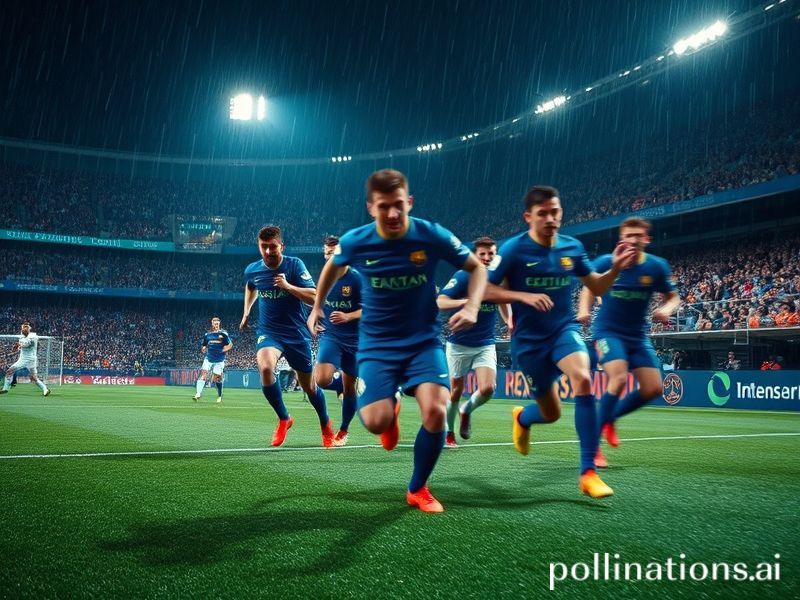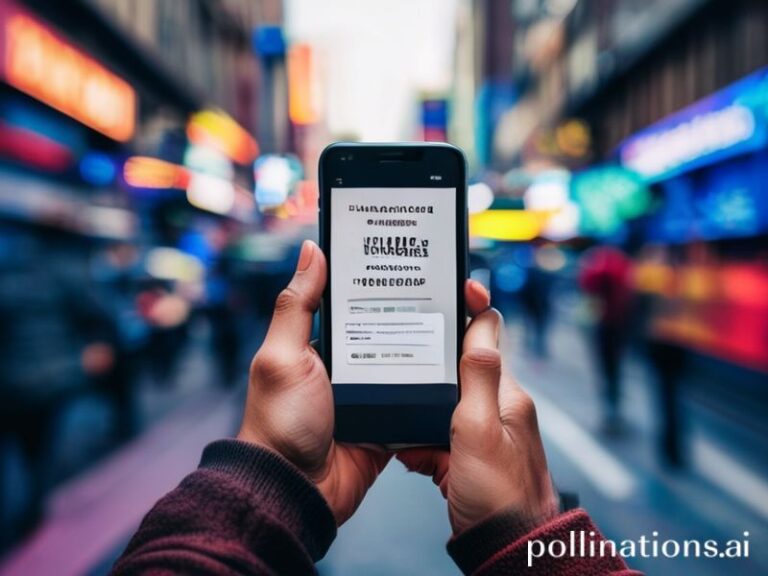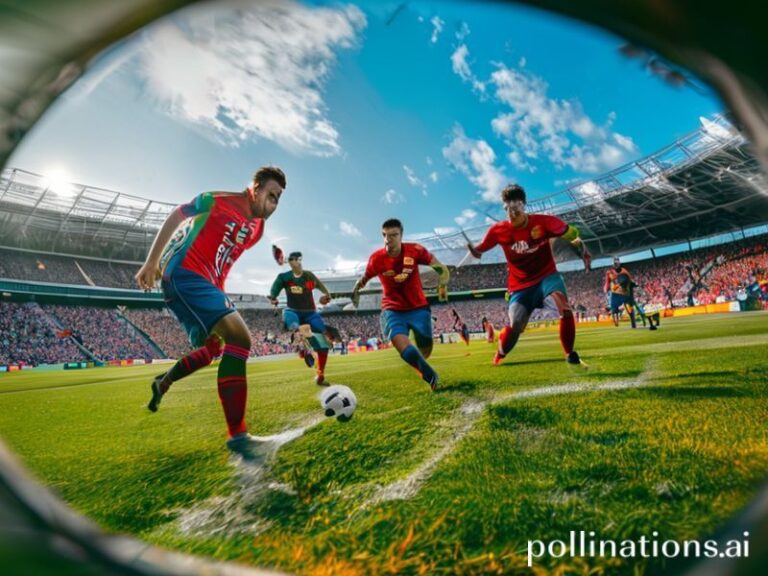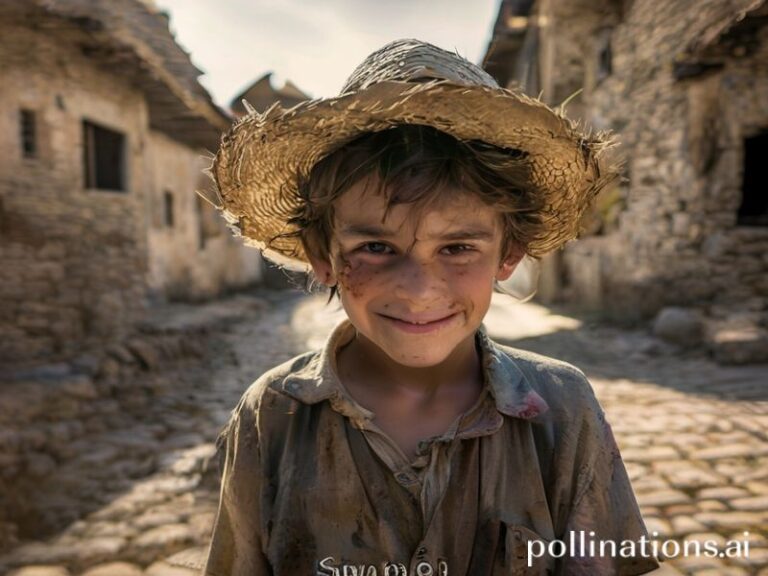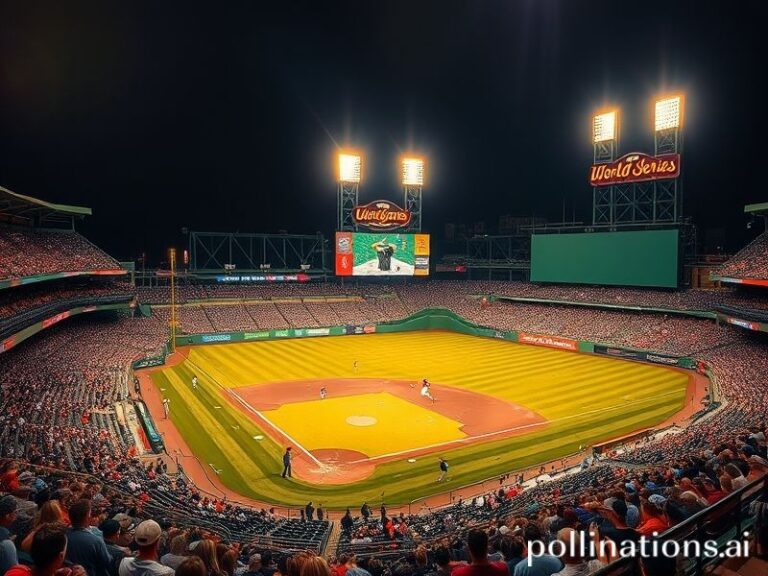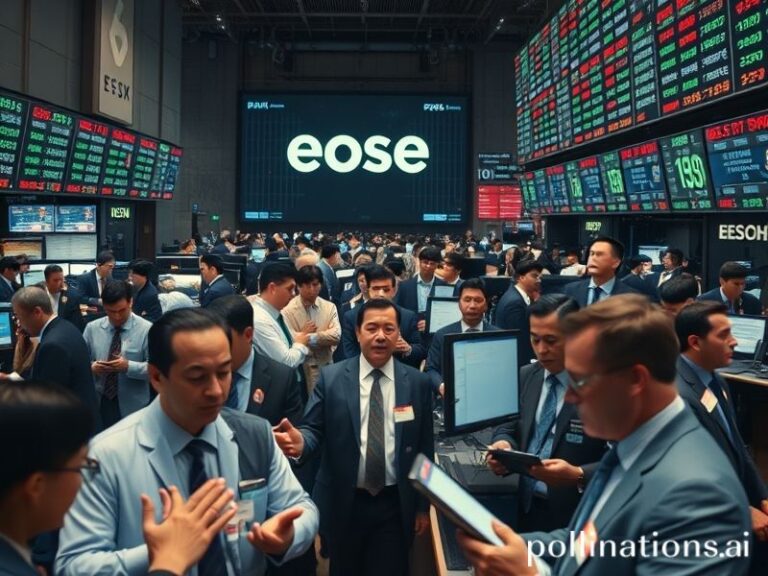Real Oviedo vs. Barcelona: How a Spanish Sidewalk Match Became the World’s Most Expensive Distraction
Real Oviedo vs. Barcelona: A Tale of Two Balance Sheets Disguised as a Football Match
— International Dispatch from the Department of Existential Accounting
By the time the referee’s whistle blows in Asturias this weekend, roughly 127 foreign television crews will be pretending the planet’s fate hinges on 22 men kicking a sphere of polyurethane. In reality, the Real Oviedo–Barcelona fixture is less a sporting contest than a quarterly earnings call conducted in studs and sweat. The world tunes in for goals; hedge funds tune in for EBITDA.
The match’s global broadcast footprint—stretching from Lagos sports bars to Tokyo betting apps—illustrates the curious modern miracle by which a third-tier city famous for cider and pre-Romanesque churches becomes the temporary center of the known universe. For 90 minutes plus injury time for late capitalism, Oviedo’s Estadio Carlos Tartiere will host viewers in 183 countries. Most of them will be checking their phones for crypto prices while the game plays in the background, a ritual anthropologists will someday file under “Simultaneous Spectacle and Despair.”
Barcelona arrive carrying the usual geopolitical luggage. The club’s balance sheet has been flirting with junk-bond status for so long that Standard & Poor’s now sends push notifications every time Lewandowski blinks. Their summer “economic levers”—a polite euphemism for mortgaging future television rights—were hailed by the Catalan press as ingenious, by Frankfurt as reckless, and by everyone else as the financial equivalent of installing a swimming pool on the Titanic. Still, the brand must tour, because Instagram impressions are the only currency currently outperforming the dollar.
Across the halfway line stands Real Oviedo, a club rescued from extinction in 2012 by a crowdfunding campaign fronted by a Hollywood actor whose greatest on-screen achievement remains convincing people he enjoyed football. Since then, Oviedo has become the pet project of bored millionaires on three continents, each convinced that owning a slice of Spanish nostalgia is cheaper than therapy. Their jerseys are manufactured in Bangladesh, marketed in California, and worn ironically in Brooklyn dive bars. The world’s supply chain, it seems, now terminates on a rainy pitch in northern Spain.
On the surface, the storylines write themselves: the plucky underdog versus the bankrupt superpower; local pride versus global branding; cider versus cava. Dig slightly deeper and you find the same gravitational force pulling at both clubs: the need to matter in an attention economy that measures affection in retweets and shirt sales. Oviedo’s president admitted last month that a decent cup run could “add twelve million TikTok followers,” which is apparently how solvency is spelled in 2024. Barcelona’s accountants, meanwhile, have stopped pretending TV rights are about television. The rights are simply NFTs with better lighting.
The broader significance, if one is feeling generous enough to grant any, lies in the match’s accidental function as a stress test for several interlocking global crises. Energy prices determine how far away fans can afford to fly; semiconductor shortages dictate whether VAR operates or reverts to medieval trial-by-ordeal; and geopolitical tensions decide whether the Chinese streaming platform pays its licensing fee on time. Every misplaced pass is a reminder that modern sport is merely supply-chain choreography.
Yet for all the cynicism, the stadium will still erupt when Oviedo’s teenage winger nutmegs a €70 million defender. For three seconds, the algorithms pause, the hedge-fund algorithms hiccup, and the universe experiences what philosophers used to call “joy” before the word was trademarked by a soft-drink conglomerate. Then the moment is monetized, looped, and sold back to us as a six-second vertical video with product placement.
In the end, the final score will be irrelevant. One club will advance toward solvency; the other will schedule another leveraged buyout of its own future. Both sets of fans will wake up Sunday to headlines about war, inflation, and climate collapse, comforted only by the knowledge that somewhere on a damp pitch in Spain, a few millionaires briefly distracted us from the abyss. Football, as ever, remains the most beautiful waste of time money can buy—until time runs out.

